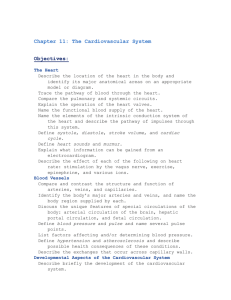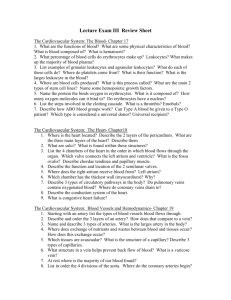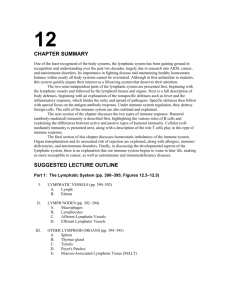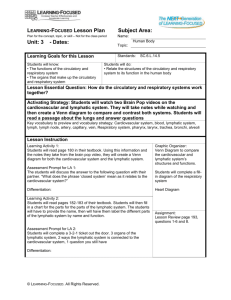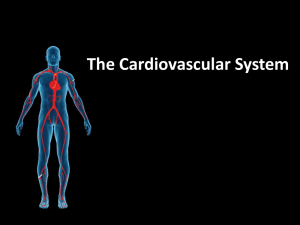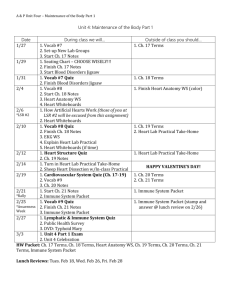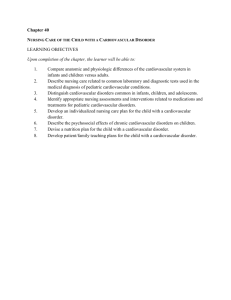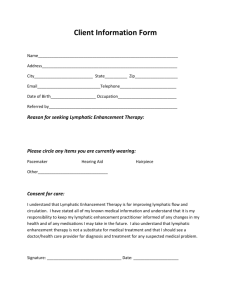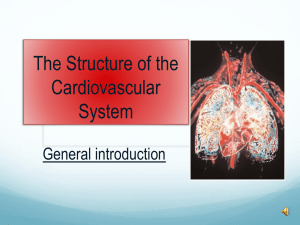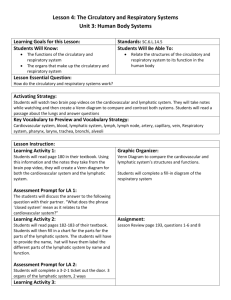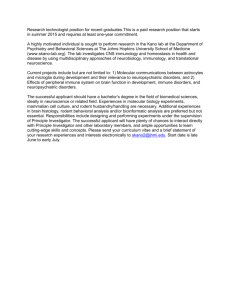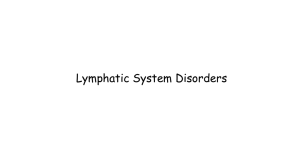Blood, Cardiovascular, and Lymphatic Systems
advertisement
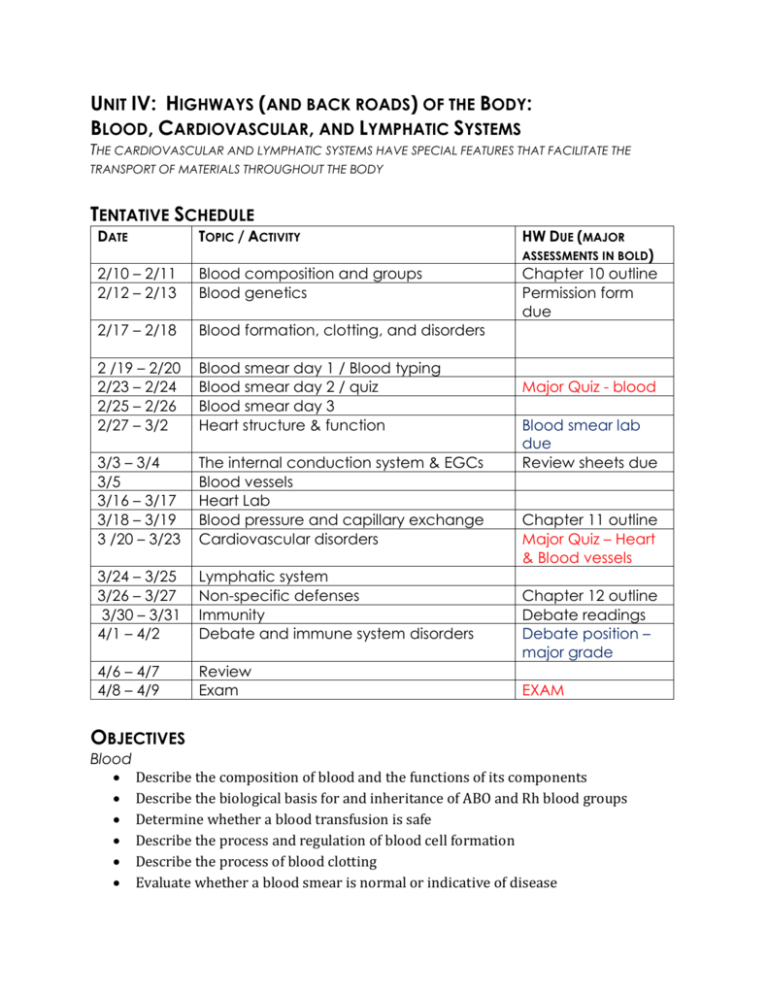
UNIT IV: HIGHWAYS (AND BACK ROADS) OF THE BODY: BLOOD, CARDIOVASCULAR, AND LYMPHATIC SYSTEMS THE CARDIOVASCULAR AND LYMPHATIC SYSTEMS HAVE SPECIAL FEATURES THAT FACILITATE THE TRANSPORT OF MATERIALS THROUGHOUT THE BODY TENTATIVE SCHEDULE DATE TOPIC / ACTIVITY HW DUE (MAJOR ASSESSMENTS IN BOLD) 2/10 – 2/11 2/12 – 2/13 Blood composition and groups Blood genetics 2/17 – 2/18 Blood formation, clotting, and disorders 2 /19 – 2/20 2/23 – 2/24 2/25 – 2/26 2/27 – 3/2 Blood smear day 1 / Blood typing Blood smear day 2 / quiz Blood smear day 3 Heart structure & function 3/3 – 3/4 3/5 3/16 – 3/17 3/18 – 3/19 3 /20 – 3/23 The internal conduction system & EGCs Blood vessels Heart Lab Blood pressure and capillary exchange Cardiovascular disorders 3/24 – 3/25 3/26 – 3/27 3/30 – 3/31 4/1 – 4/2 Lymphatic system Non-specific defenses Immunity Debate and immune system disorders 4/6 – 4/7 4/8 – 4/9 Review Exam Chapter 10 outline Permission form due Major Quiz - blood Blood smear lab due Review sheets due Chapter 11 outline Major Quiz – Heart & Blood vessels Chapter 12 outline Debate readings Debate position – major grade EXAM OBJECTIVES Blood Describe the composition of blood and the functions of its components Describe the biological basis for and inheritance of ABO and Rh blood groups Determine whether a blood transfusion is safe Describe the process and regulation of blood cell formation Describe the process of blood clotting Evaluate whether a blood smear is normal or indicative of disease Describe the causes, symptoms, and treatment of common blood disorders Cardiovascular Describe the structure of the heart Describe the path of blood flows through the heart and body Describe the conduction system of the heart Relate events in the cardiac cycle to ECG and identify abnormal ECGs Compare and contrast the structure and function of the major types of blood vessels Explain how different factors influence blood pressure Describe the causes, symptoms, and treatment of common cardiovascular disorders Lymphatic System and Body Defenses Describe the structure of the lymphatic system and related the structure to function Compare the functions of the lymphatic, immune, and cardiovascular systems Compare and contrast specific and nonspecific defenses, and provide examples of each Compare and contrast immune cells Explain the process of clonal selection Describe the functions of fever and inflammation Compare and contrast types of immunity, including primary and secondary responses, naturally acquired and artificially acquired, and passive and active Describe the function and actions of antibodies Describe the causes, symptoms, and treatment of immune disorders Analyze data related the information above!
